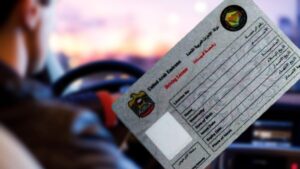FBR Implements Property Purchase Bar for Section 7E Defaulters – A Step Towards Fiscal Responsibility

FBR Implements Property Purchase Bar for Section 7E Defaulters A Step Towards Fiscal Responsibility
Introduction
The FBR holds significant importance in numerous countries as it is responsible for collecting taxes and enforcing tax laws to maintain the financial stability of the nation. Recently, the FBR has taken a significant step to curb tax evasion and improve revenue collection by implementing a bar on property purchases for section 7E defaulters. This move aims to hold defaulters accountable and promote fiscal responsibility.
In this blog, we will delve into the implications of this decision, its potential benefits, and its impact on tax compliance and overall economic stability.
Understanding Section 7E Defaulters
Section 7E refers to a specific provision of tax laws that deals with tax defaulters or individuals who have failed to meet their tax obligations. These defaulters either deliberately or inadvertently evade paying taxes, leading to losses in government revenue. To address this issue effectively, the FBR has decided to take stringent measures that not only penalize the defaulters but also deter potential offenders.
The Bar on Property Purchases: A Strict Measure
The FBR’s decision to impose a bar on property purchases for section 7E defaulters is a strict measure to curb tax evasion. It means that individuals falling under this category will not be allowed to buy or transfer ownership of any property until they clear their outstanding tax liabilities. By restricting access to one of the most significant assets, the FBR hopes to encourage tax defaulters to comply with tax laws and fulfill their tax obligations promptly.
Encouraging prudent financial behavior
Fiscal responsibility is crucial for the economic growth and stability of a nation. When individuals or businesses default on their taxes, the government faces challenges in funding essential services and development projects. By imposing property purchase restrictions, the FBR aims to foster a culture of fiscal responsibility and ensure that taxpayers contribute their fair share towards the country’s progress.
Boosting Tax Compliance
Tax evasion not only deprives the government of revenue but also creates an uneven playing field for honest taxpayers. When some individuals or businesses evade taxes, the burden of funding public services falls on law-abiding citizens. With the property purchase bar in place, tax defaulters will face tangible consequences for their actions, thereby incentivizing them to become compliant taxpayers.
Impact on Real Estate Sector
The real estate sector plays a crucial role in the economy, and any significant changes can have ripple effects. With the property purchase bar, there might be a temporary slowdown in property transactions involving defaulters. However, this measure is likely to have a positive long-term impact on the sector by encouraging transparency and compliance. Honest buyers may also gain confidence in the market, knowing that measures are in place to prevent property-related tax evasion.
Promoting voluntary sharing of information
To mitigate the impact of the property purchase bar, the FBR may provide a window for defaulters to voluntarily disclose their tax liabilities and work towards a payment plan. Such voluntary disclosure initiatives can help defaulters avoid the restrictions and penalties associated with tax evasion while taking the first step towards becoming compliant taxpayers.
Challenges and Enforcement
Implementing the property purchase bar effectively requires robust enforcement mechanisms and collaboration between the FBR, real estate agents, and relevant government agencies. The FBR must ensure that defaulters’ information is up-to-date and accurate to prevent individuals from evading the restriction by using proxies or false information during property transactions.
Conclusion
The FBR’s decision to implement a property purchase bar for section 7E defaulters is a commendable move towards promoting fiscal responsibility and enhancing tax compliance. By holding tax defaulters accountable and imposing consequences for non-compliance, the FBR aims to strengthen the country’s revenue collection system. While this measure may present some challenges, its potential benefits in terms of improved tax compliance and economic stability outweigh the temporary impact on the real estate sector.
As the FBR enforces this measure diligently and offers opportunities for voluntary disclosure, it can foster a culture of tax compliance and contribute to the nation’s overall financial health. By combining strict measures with education and support for taxpayers, the FBR can pave the way for a more transparent and prosperous economy.
For More Related Articles Browse Our Website Blogster.pk
For social Connection You can also Visit and follow our Social media Platforms
Facebook , Instagram, Linkedin, Pinterest, Quora, Twitter, Youtube.








